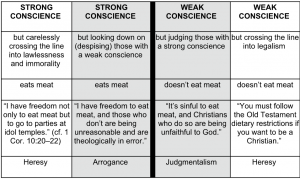Yep, There’s an App for That
We check our smartphones about 81,500 times each year, or once every 4.3 minutes of our waking lives.1
The impulse is not hard to understand. Our lives are consolidated on our phones: our calendars, our cameras, our pictures, our work, our workouts, our reading, our writing, our credit cards, our maps, our news, our weather, our email, our shopping—all of it can be managed with state-of-the-art apps in powerful little devices we carry everywhere. Even the GPS app on my phone, which guided me to a new coffee shop today, possesses 30,000 times the processing speed of the 70-pound onboard navigational computer that guided Apollo 11 to the surface of the moon.
It’s no wonder we habitually grab our phones first thing in the morning, not only to turn off our alarms, but also to check email and social media in a half-conscious state of sleep inertia before our groggy eyes can fully open. If the ever-expanding universe is humankind’s final horizon outward, our phones take us on a limitless voyage inward, and we restart the journey early every morning.
I am no stranger to this instinctive phone grab, but I wanted to see if others shared this pattern, so I surveyed 8,000 Christians about social media routines.2 More than half of the respondents (54 percent) admitted to checking a smartphone within minutes of waking. When asked whether they were more likely to check email and social media before or after spiritual disciplines on a typical morning, 73 percent said before. This reality is especially concerning if the morning is when we prepare our hearts spiritually for the day.
Our phones are addictive, and, like addicts, we seek hits immediately in the morning. And, yes, there’s an app for that.
Why Distractions Lure Us
Unhealthy digital addictions flourish because we fail to see the consequences, so let’s begin our study by uncovering three reasons why we succumb to distractions so easily.
First, we use digital distractions to keep work away. Facebook is a way of escape from our vocational pressures. We procrastinate around hard things: work deadlines, tough conversations, laundry piles, and school projects and papers. The average American college student wastes 20 percent of class time tinkering on a digital device, doing things unrelated to class (a statistic that seems low to me!).3 When life becomes most demanding, we crave something else—anything else.
Second, we use digital distractions to keep people away. God has called us to love our neighbors, yet we turn to our phones to withdraw from our neighbors and to let everyone know we’d rather be somewhere else. In a meeting or a classroom, if my phone is put away, I am more likely to be perceived as engaged. If my phone is not in use, but is faceup on the table, I present myself as engaged for the moment, but possibly disengaged if someone more important outside the room needs me. And if my phone is in my hand, and I am responding to texts and scrolling social media, I project open dismissiveness, because “dividing attention is a typical expression of disdain.”4
In the digital age, we are especially slow to “associate with the lowly” around us (Rom. 12:16). Instead, we retreat into our phones—projecting our scorn for complex situations or for boring people. In both cases, when we grab our phones, we air our sense of superiority to others—often without knowing it.
Third, we use digital distractions to keep thoughts of eternity away. Perhaps most subtly, we find it easy to fall into the trap of digital distractions because, in the most alluring new apps, we find a welcome escape from our truest, rawest and most honest self-perceptions. This was the insight of 17-century Christian, mathematician and proverb-making sage Blaise Pascal. When observing distracted souls of his own day (not unlike those of our time), he noticed that if you “take away their diversion, you will see them dried up with weariness,” because it is to be ushered into unhappiness “as soon as we are reduced to thinking of self, and have no diversion.”5 Pascal’s point is a perennial fact: The human appetite for distraction is high in every age, because distractions give us easy escape from the silence and solitude whereby we become acquainted with our finitude, our inescapable mortality, and the distance of God from all our desires, hopes and pleasures.
The Pascal of our generation puts it this way: “We run away like conscientious little bugs, scared rabbits, dancing attendance on our machines, our slaves, our masters”—clicking, scrolling, tapping, liking, sharing…anything. “We think we want peace and silence and freedom and leisure, but deep down we know that this would be unendurable to us.” In fact, “we want to complexify our lives. We don’t have to, we want to. We want to be harried and hassled and busy. Unconsciously, we want the very thing we complain about. For if we had leisure, we would look at ourselves and listen to our hearts and see the great gaping hole in our hearts and be terrified, because that hole is so big that nothing but God can fill it.”6
Uncomfortably Close to Eternity
To numb the sting of this emptiness, we turn to the “new and powerful antidepressants of a non-pharmaceutical variety”—our smartphones.7 But even as we seek escape in social media, death follows us and haunts those digital diversions in new ways. “I love the fun and frivolity of much of Twitter. The GIFs. The jokes. The nested conversations,” admits one honest writer. “The reality is, though, deep down there’s part of me that’s scared that if I’m out of sight, I’ll be out of mind, and I won’t matter anymore. In a sense, this is one dimension of the looming fear of death that most of us in contemporary American society never want to wrestle with or name anymore.”8 No, we don’t. All of us find ourselves uncomfortably close to passing into the mystery of eternity, leaving this place, and being forgotten in the only home we’ve ever known. So every day we jump back into the hamster wheel of our digital conversations and muffle the reality.
The philosophical maxim, “I think, therefore I am,”9 has been replaced with a digital motto, “I connect, therefore I am,”10 leading to a status desire: “I am ‘liked,’ therefore I am.”11 But our digital connections and ticks of approval are flickering pixels that cannot ground the meaning of our lives. And yet, I seek to satisfy this desire every time I cozy up to the Facebook barstool, to be where every friend knows my name, where my presence can be affirmed and reaffirmed at virtual points throughout the day. I want anything to break the silence that makes me feel the weight of my mortality.
So here’s an exercise to help ground our self-perception. Once a day, set your phone down for a moment, hold out your right hand, palm out and fingers to the sky, and imagine the timeline of history reaching a mile to your left and an eternity to your right. Your time on earth intersects roughly the width of your hand (give or take).12 Nothing puts social media and smartphone habits into context like the blunt reality of our mortality.
Let it sink in a bit. Feel the brevity of life, and it will make you fully alive.13
Notes
1. Jacob Weisberg, “We Are Hopelessly Hooked,” The New York Review of Books (Feb. 25, 2016).
2. This was a nonscientific survey of desiringGod.org readers conducted online via social-media channels (April 2015).
3. Leslie Reed, “Digital Distraction in Class Is on the Rise,” Nebraska Today, news.unl.edu (Jan. 15, 2016).
4. Oliver O’Donovan, Finding and Seeking: Ethics as Theology (Grand Rapids, MI: Eerdmans, 2014), 45.
5. Blaise Pascal, Thoughts, Letters, and Minor Works, ed. Charles W. Eliot, trans. W. F. Trotter, M. L. Booth, and O. W. Wight (New York: P. F. Collier & Son, 1910), 63.
6. Peter Kreeft, Christianity for Modern Pagans: Pascal’s Pensées Edited, Outlined, and Explained (San Francisco: Ignatius, 1993), 168–69.
7. Andrew Sullivan, “I Used to Be a Human Being,” New York magazine (Sept. 18, 2016).
8. Derek Rishmawy, “Forget Me Not (Twitter and the Fear of Death),” Reformedish, derekzrishmawy.com (April 6, 2016).
9. René Descartes, The Philosophical Works of Descarte, trans. E. S. Haldane and G. R. T. Ross (New York: Cambridge University Press, 1970), 101.
10. Kevin Vanhoozer, interview with the author via email (Feb. 26, 2016).
11. Donna Freitas, The Happiness Effect: How Social Media Is Driving a Generation to Appear Perfect at Any Cost (New York: Oxford University Press, 2017), 33.
12. Ps. 39:4–5.
13. Ps. 90:12.
Be sure to take a look at Crossway’s phone usage infographic for more statistics related to the many ways our phones are changing us—for better and for worse.
Blog originally published on Crossway.org; Material adapted from 12 Ways Your Phone is Changing You by Tony Reinke, © 2017. Used by permission of Crossway, a publishing ministry of Good News Publishers, Wheaton, IL 60187, www.crossway.org.












